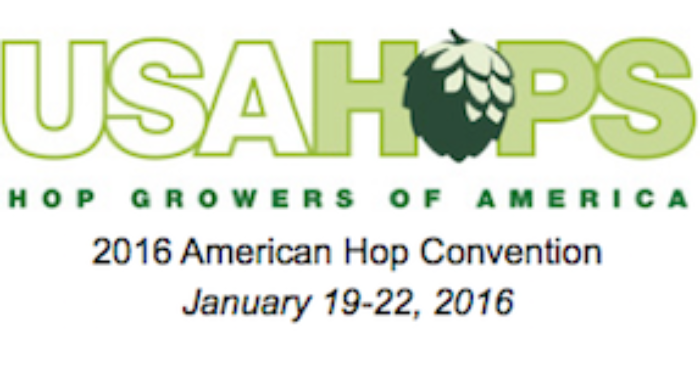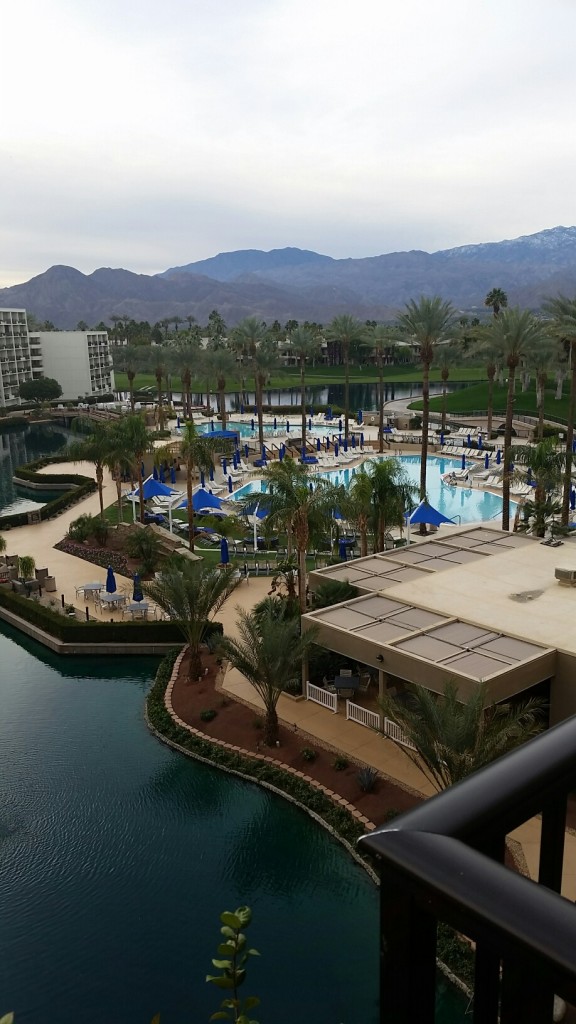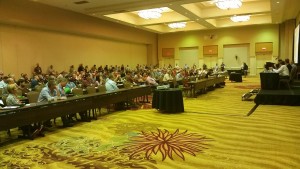Manifest destiny and the changing face of the HGA
The hop industry is manifesting into a new reality—one that will inevitably shape its destiny. The U.S. hop growing map is changing with many more states getting into commercial hop operations.

Here in the Pacific Northwest, we’ve been getting above average precipitation and snowpack in the Cascades. And while the rain and snow is certainly welcome after last year’s draught, it was good to escape the cold and gloom of late-January Yakima to attend the 60th Annual Convention of the Hop Growers of America (HGA) in Desert Springs, California.
 Every winter, the HGA gives hop growers, dealers and brewers a chance to reflect on the previous year’s crop, share information and plan for the future. It’s also an important opportunity to review the research conducted by members of the Hop Research Council (HRC), a not-for-profit organization that funds and directs hop research to benefit the U.S. hop industry. Not so coincidentally, the HRC holds its Winter Meeting at the same venue immediately prior to the HGA.
Every winter, the HGA gives hop growers, dealers and brewers a chance to reflect on the previous year’s crop, share information and plan for the future. It’s also an important opportunity to review the research conducted by members of the Hop Research Council (HRC), a not-for-profit organization that funds and directs hop research to benefit the U.S. hop industry. Not so coincidentally, the HRC holds its Winter Meeting at the same venue immediately prior to the HGA.
I’ve attended the HGA convention off and on for the past twenty years, and it used to be a close gathering about 150 attendees; typically folks with direct ties to the work being done through the HRC. As interest in hops has exploded in recent years, so has the event. It now attracts nearly 500 participants—an ever-expanding group of brewers, especially craft, who want to keep abreast of the world of hops, and be part of its culture and experience.
The theme of this year’s event was “Manifest Destiny” as the hop industry is manifesting into a new reality—one that will inevitably shape its destiny. The U.S. hop growing map is changing with many more states getting into commercial hop operations. The Pacific Northwest still reigns with the vast majority of hops originating from Washington, Oregon and Idaho. But other regions are getting into the act.
With the success of commercial operations, and the most non-Pacific Northwest acreage, Michigan, New York, Wisconsin and Colorado are all garnering significant attention. They’re quickly followed by California, Ohio and Vermont, along with more southern states including Virginia and North Carolina. These new commercial areas have a great deal of ground to make up to compete directly with the Northwest, but that’s not their short-term goal. They are targeting local craft and regional brewers with their locally grown hops. But make no mistake, their dedication and passion for their craft and will continue to grow as will their contribution to brewing in the years ahead.
To reflect this emergence of new growers, the HGA’s convention schedule of events included workshops and roundtable discussions targeted specifically for them—deemed the “Small Grower Track”—which directly contrasted the established growers’ “Legacy Grower Track.” Topics presented for the small growers centered around selecting and acquiring hop varieties, optimizing cultivation practices as well as introducing advancements in specialty equipment, trellis design, irrigation and harvesting. The Legacy Growers Track delved into topics around such issues as labor shortage, risk management and improvements in the public breeding programs to help meet the growing demand for unique and better performing hop varieties.
Of course, a big topic of the convention—and one, it seems, everyone had some speculation on—was what’s happening in the brewing industry and how is that going to affect us all in the near and distant future? Three opening day presentations under the title “Beer Market Trends and the Hop Industry” featured some heavyweights in beer market prognostication including Ross Colbert, a beverage global strategist, along with Bart Watson and Chris Swersey from the Brewers Association in Boulder.
The presenters gave us their insights and, in a nutshell, they showed that demand for hops will grow as the craft segment continues on a double-digit growth pace in the near future, albeit leveling somewhat, and that hops will continue to be a primary focus of the brewers even with the introduction of the newer non-IPA “sessionable” beer styles.
Featured on the final day of the meeting agenda were some well-known leaders in the hop industry including Alex Barth, Louis Gimbel IV, Steve Carpenter and Ian Ward, sharing their expertise and insight during the session on “Emerging Emphasis on Food Safety and Sustainability.” A topic of great importance to brewers and the hop industry.
Speaking of well-known leaders, the keynote address was given by none other than Charlie Papazian, founder of the Brewers Association, who really needs no introduction to readers of this blog. Charlie is an engaging speaker and shared stories of his personal growth and relationship with hops and the hop industry since the 1970s. To the chagrin of some in the crowd, he had some great pictures from past decades, adding a bit of nostalgia into the conversation.
But what really hooked me was when Charlie spoke of a strange reaction he has when smelling beer that’s been brewed with a specific variety of hop. It made him sneeze. As soon as he mentioned it I thought…Chinook…I’ll bet it’s Chinook! That’s because, over the course of many, many hop selections session, I invariably get a sneezing fit whenever I sniff that variety. Sure enough, Charlie said it was Chinook in the beer that make him sneeze. After his talk I mentioned this to him and he thanked me for validating his experience. Yeah, right. Me validating the master.
Cheers!




